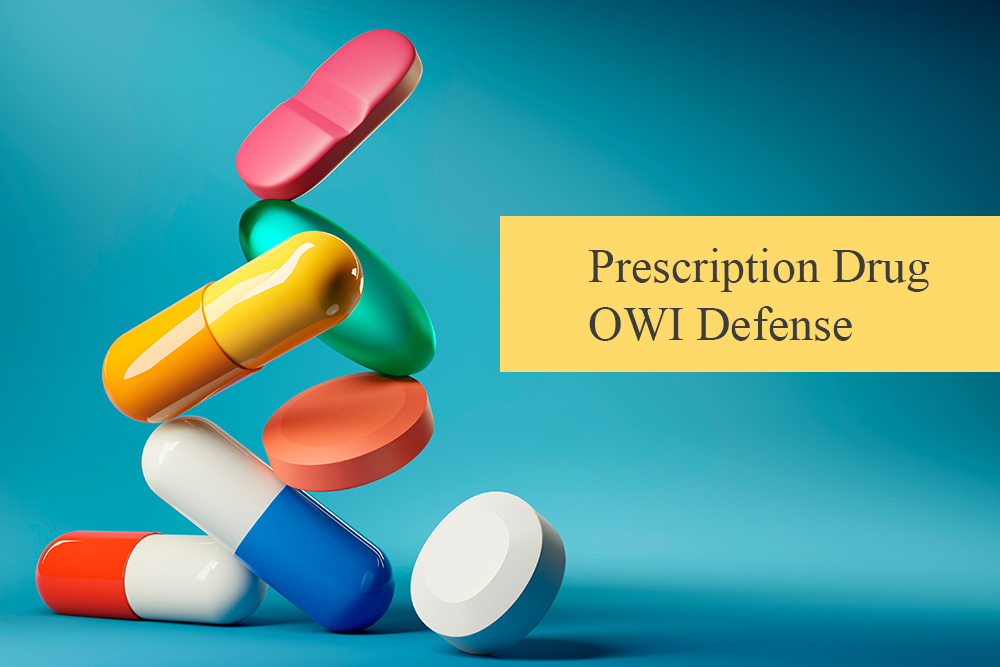Marijuana, Prescription Medications, and OWI in Indiana

Law enforcement may perform chemical testing when you are arrested on suspicion of Operating While Intoxicated (OWI). This is done by collecting your blood, urine, or breath. These tests were originally meant to detect alcohol consumption. Indiana authorities also look for evidence that suspects consumed other drugs, especially marijuana and prescription medications, that may cause impairment. Any presence of drugs in your system increases your risk of an OWI conviction. Should you find yourself in this situation, the services of a criminal lawyer in Indiana become critical.

What Indiana Law Says About Drugged Driving
Drugged driving describes operating a motor vehicle while using a Schedule I or II controlled substance. People charged with driving under the influence of drugs usually stand accused of using:
- Marijuana
- Cocaine
- Methamphetamine
- Heroin
- Methadone
- Diazepam
- Ambien
Law enforcement does not have a reliable method for detecting the presence of drugs in your body during roadside testing. However, if you are arrested on suspicion of OWI, you’re legally obligated to submit to chemical testing, usually a blood or urine test administered by a trained professional within hours of your arrest.
A chemical test can find metabolites of controlled substances in your body, and metabolites are the molecular markers of drug consumption. According to the law, any amount of metabolites justifies charging a driver with Operating While Intoxicated (OWI).
The criminal justice system also considers drug use an aggravating factor, meaning the court could treat you more severely than if your testing had only detected alcohol.
Although your positive drug test creates a challenging situation for a criminal lawyer in Indiana, legal representation may still benefit you.
The Difference Between Drugged Driving and Drunk Driving
Consumption of various drugs besides alcohol impacts people’s ability to function safely behind the wheel of a motor vehicle. Results from a driver survey in 2019 indicated that 28.7 million people admitted to driving under the influence of illicit drugs at least once. In 2007, the National Highway Traffic Safety Administration reported that 16.3% of nighttime drivers tested positive for drugs on weekends.
Due to the prevalence of drug use while operating a vehicle, state law allows law enforcement to charge drivers impaired by drugs with OWI. Drug impairment can include:
- Reduced vision
- Inability to understand surroundings
- Reduced motor skills
- Poor judgment
- Slowed reaction time
- Bad decision making
Despite the possibility of physical and mental effects from drugs, impairment is more challenging to measure in people who have consumed marijuana or prescription medications compared to alcohol.
The presence of alcohol in a person’s body consistently produces effects such as slower reaction time and reduced motor skills. As alcohol fades from the body, normal physical and mental capabilities return.
Drugs other than alcohol have less predictable effects throughout the population. A blood test that finds evidence of drug metabolites does not directly translate into intoxication or impairment during your traffic stop. A criminal attorney defending you from an OWI charge will highlight this reality in court to remind the judge or a jury that the chemical test does not automatically mean guilt in the absence of other meaningful evidence.

Zero Tolerance for Marijuana
Marijuana presents a big problem for drivers accused of OWI because its drug metabolites remain in your body for weeks after consumption. This means that the state will still view you as an intoxicated driver even if you did not use it on the day of your traffic stop.
Unlike alcohol, there is not a legal limit for marijuana or most other controlled substances. Any amount of marijuana detected in your system is grounds for OWI conviction. This differs from alcohol because authorities must measure a blood alcohol concentration (BAC) of 0.08% or more to convict adults not operating commercial vehicles of OWI under most circumstances.
If you stand accused of OWI due to the detection of marijuana by a chemical test, consult us at Webster & Garino, LLC, about your criminal defense in Westfield. A knowledgeable advocate who can argue against the unfair application of law may persuade the court system to act leniently.

Prescription Drug OWI Defense
Indiana does not recognize marijuana as acceptable for medical use, but state law allows you to defend yourself from OWI if you are accused of taking other prescription medications. Sometimes the effects of a prescription drug catch people off guard. Perhaps your prescription affected you in an unexpected way to what your doctor told you would happen.
To succeed with this strategy, your criminal attorney must show that you used the medication in compliance with your doctor’s orders. Any deviation from medically appropriate actions could derail your defense.
Can an OWI Lawyer Help Someone Arrested for Drugged Driving?
The experience that an OWI lawyer has gained defending people accused of drunk driving is applicable to people accused of drugged driving. Similar legal standards apply, and a criminal lawyer in Indiana will strive to eliminate evidence and ensure fair treatment.
When confronted with a positive drug test, you may believe you have no defense options, which is not always true. If you were using prescribed medication, then your lawyer may counteract any claims that you were not following the doctor’s orders when the prosecutor has minimal evidence one way or the other.
Do Not Face the Criminal Justice System Alone
Getting arrested is a very isolating experience, and you’re likely to be upset or embarrassed. At Webster & Garino, LLC we understand that good people make mistakes and we will be there with you throughout the entire process.
Schedule a free consultation and find out what to do next. Call our team or email the office right now.

